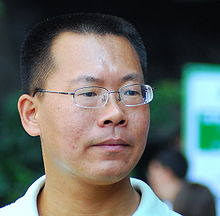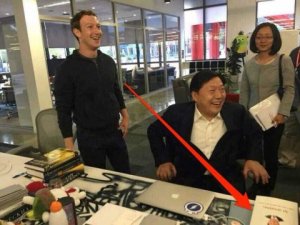Xi Jinping’s New Year’s Resolutions: Rule of Law and Join Facebook?
For the second year in a row, China’s president, Xi Jinping (pronounced See Gin-ping) has taken a page from democracy’s playbook addressing the Chinese people directly in an annual New Year message broadcasted throughout the country. Think the Queen’s annual Christmas message but without the pearls, British accent or lavender dress.
This year, Xi spoke with more confidence about the direction of his rule: deepen reform, continue the corruption crackdown and rule the country in accordance with law. Expect 2015 to bring more corruption inquiries against Chinese Communist Party members both high and low. But what should be made of “rule the country in accordance with law ” (依法治国)? According to Xi, rule the country in accordance with law should “safeguard the rights of people” and “maintain social justice.” But since taken power, Xi has made it clear that this “safeguarding” and “maintaining” is to come from the Party itself, not from the people.
Unlike the U.S. President’s weekly radio address, there is no opposition party response because in China, there is no meaningful opposition party. But if anything comes close to countering Xi’s speech it would be Teng Biao’s (pronounced Tongue Beow) recent op-ed in the Washington Post. Teng, a Chinese human rights lawyer, notes the hollowness of Xi’s mantra of “rule in accordance with the law” in light of the fact that civil rights activists and lawyers have repeatedly been persecuted, prosecuted and in the case of citizen activist Cao Shunli (pronounced Tsow Shun-lee), killed in custody.
Teng also highlights the limitation of reform in China. Contrary to Xi’s speech, legal reform – or at least the version Xi seeks to implement – is not about the people’s rights. Rather it is a way to enhance the Party’s legitimacy. Even the anti-corruption campaign is not about officials following the law; it is a necessity for the Party to maintain its power. But ultimately, if these reforms are to have true success, they will have to undermine the Party’s rule.
While Teng warns of Xi’s empty promises, the question still remains, does anyone – especially business leaders – care. China has become a huge market force that cannot be ignored. Mark Zuckerberg, founder and CEO of Facebook appears to be toying with the idea of entering the Chinese market even though under Chinese law he would be required to conduct the Chinese government’s censorship of Facebook in China. In early December, Zuckerberg appeared to be making nice with China’s censorship regulator Lu Wei (pronounce Lou Way), meeting him in Facebook’s California office and informing Lu that he has been reading the collection of Xi’s speeches (including conveniently leaving a copy on his desk). But could Zuckerberg’s feelings for Xi be mutual? In his New Year speech, Xi used the internet slang “dian zan” (点赞) (pronounce dee-ann zan) to give the Chinese people “thumbs up.” But dian zan – literally meaning to “click praise” – is specific to the social networking age and came into being to refer to the “Like” button in facebook. While a dian zan – like – button is also used by China’s Weibo users, could Xi’s reference be a signal that he will be opening a Facebook account in 2015?
Watch Xi’s New Year 2015 Address With English Subtitles:
 On Facebook
On Facebook By Email
By Email 


